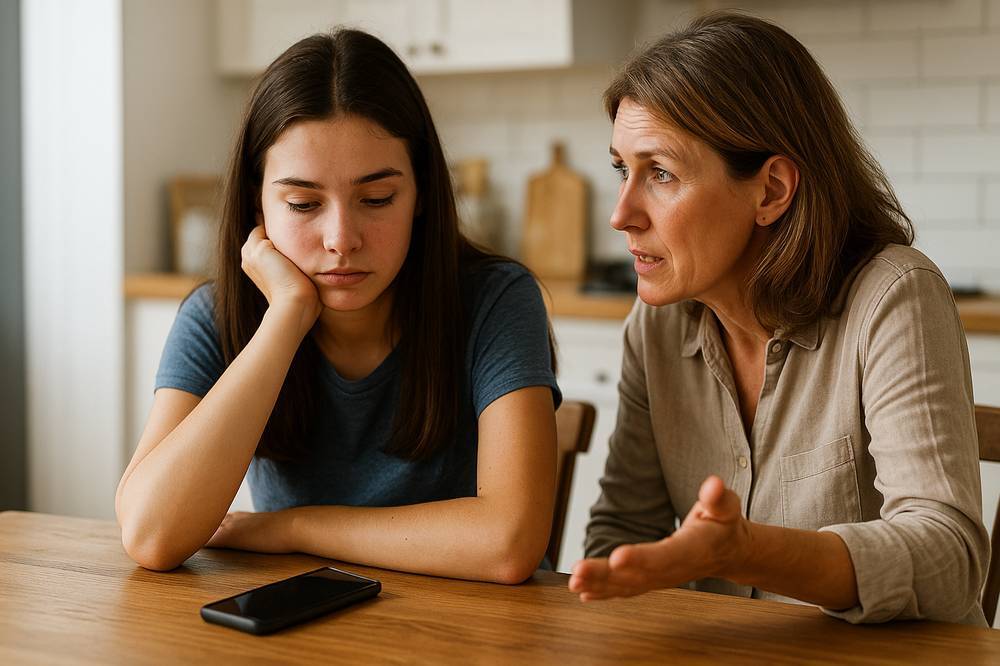We’ve all done it: threatened to pull the Wi-Fi plug, argued about bedtime scrolling or secretly rejoiced when the router “breaks.” Conventional wisdom says limiting screen time protects our kids’ mental health. But fresh research suggests we’ve been obsessing over the wrong thing.
A study following more than 4,000 children from age nine to 14 found that total hours on devices didn’t predict depression or suicide risk. What mattered was the relationship our kids formed with their screens. Roughly one third of participants developed compulsive social media habits; those teens were about twice as likely to have suicidal thoughts and three times more likely to act on them. Researchers defined addictive use as feeling unable to stop, becoming distressed when not online or using screens to escape problems. Even children who began as light users often escalated by adolescence.
This loop looks a lot like any other addiction: restlessness or irritability when you take the phone away, lying about use and prioritising screens over sleep, chores or friends. Simply cutting off access won’t teach our kids how to manage their digital lives; abrupt bans can even backfire.
If we’re going to help, we need to shift our focus. Instead of counting minutes, pay attention to motivations and emotions. Are devices becoming a default coping mechanism? Is your teen anxious or angry when not connected? Teach them to notice how they feel before and after scrolling. Set joint boundaries rather than imposing unilateral limits, and model healthy habits yourself. In some cases, support from a mental health professional is the best option. Therapists who understand addiction can help teens develop coping strategies beyond “just turn it off.”
Beyond the home there’s a bigger picture. In Egypt, the General Secretariat of Mental Health and Addiction Treatment has been running campaigns across schools and community centres to smash stigma. The national “100 Million Healthy Lives” initiative now includes mental health alongside vaccination drives, and hundreds of counselling centres have opened to bring support closer to families. Encouraging hobbies, sports or volunteer work that give teens a sense of purpose away from screens can dovetail with these public efforts. Taking screen addiction seriously fits neatly into that broader movement.
We’re all parenting in uncharted territory. A decade ago we fretted about Facebook; now we’re contending with algorithms designed to hijack attention. Instead of feeling guilty every time your teen picks up their phone, channel that energy into curiosity about why they reach for it. Conversations about stress and loneliness can be messy, but they’re the only way to teach our kids they don’t need a glowing rectangle to feel okay. Five minutes of genuine connection might be worth more than any screen-time timer.
Sources:
[1] Weill Cornell Medicine newsroom: “Study Finds Addictive Screen Use, Not Total Screen Time, Linked to Youth Suicide Risk”.
[2] Psychology Today: “Problematic Screen Use, Not Total Time, Impairs Youth Mental Health”.
[3] Economist Impact: “Tackling mental health in Egypt”.







Leave a Reply
You must be logged in to post a comment.